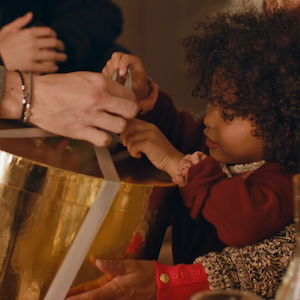Why Data Capture is Essential for Businesses Attending Events
By Jo Phillips
It seems like every year, trade shows and broader business events grow in prevalence as a strategy for companies and entrepreneurs to network with one another, share ideas, and understand their competitors in the market they’re operating in. For those companies who are strategic and intentional about how and why they attend business events, it creates the opportunity to stay ahead of the market by learning more about your rivals, suppliers, and consumers.
But how do businesses use events to gain a deeper understanding of their market? Typically, most people would assume that attending business events is simply a networking strategy or a hopeful mechanism for an entrepreneur to become inspired by a speech, mindset, or idea that they lay witness to.
However, an often overlooked, yet essential motivating factor for businesses attending events should always be the collection of data on your potential consumers and competitors, allowing your business to analyse the market, discover potential uncovered service or product gaps, and tailor the way you operate to suit the needs of your customer base.
In this blog, we’ll discuss what data capturing is in the context of business events, the most effective ways to conduct it, and why it’s essential for the growth and profitability of your business. Let’s dive in.
We’re all, to some extent, familiar with what data collection is: the action or process of gathering data, generally from an automatic device, control system, or sensor. Through the collection of data, whether it be information on the demographics of your customer base, the expected industry costs of production, or sales forecasts, businesses access quantifiable figures about both their own business and the wider market standards to drive accurate decision-making in product development and ultimately reduce wider variable costs.This approach is a key component of digital transformation for small businesses, empowering them to make data-driven decisions that enhance competitiveness and adaptability in a dynamic market.
While attending a business event, there are a number of technological opportunities that allow an entrepreneur, business leader or representative to capture vast amounts of data to become more knowledgeable about their business and the market itself. So, we’ll talk you through the most efficient and successful methods for capturing data at business events: surveys.
Whether partaken in the traditional physical sense or utilised through advancements in technology allowing you to intricately relay information into a digital spreadsheet, a survey is a great way to learn about your market and how you may need to alter aspects of your business to suit the external climate.
While as business leaders and professionals we possess strong communicative abilities to improve harmony and morality among teams, and to increase the profitability of our business, we’re not trained to conduct surveys in a manner whereby it makes participants particularly inclined to give away their personal information. So, find a recruitment agency for event staff (like Event People for example) and hire the best professionals specialised in conducting surveys and making customers or attendees feel at ease and welcomed when answering questions about their buying or lifestyle behaviours.
As a result, a team of brand ambassadors and or hospitality staff, skilled on one-to-one interaction with visitors will help elicit as much information as possible without attendees feeling pressured or ‘cornered’.
What Sort of Information Should I be Looking to Capture from Surveys?
This will be somewhat subjective to the needs of your business and the areas that you’ve identified you need to learn more about to increase the accuracy of your decision making and knowledgeability of the broader market. But there are a couple of standardised pieces of information that you should be looking to uncover from conduction surveys to capture data at business events.
1. Profile your customers: Perhaps the simplest and most easily collected piece of information you could gather at business events is the profile of your customers and how they interact with your brand. You can ask questions about their age, demographic, needs, buying history, and how external factors like changes in the economy might affect their future consumption patterns.
2. Improve how you operate at business events: Since business events can be costly to attend if you have a stall, provide a live demonstration, or conduct vast amounts of research, you need to know that consumers understand and enjoy what you’ve displayed at the business event. Ask consumers and attendees for feedback about how your business operated at the event and if it made them more or less likely to interact with the brand or business in the future.
What are the Three Biggest Benefits you can Expect to Experience from Capturing Data at Business Events?
There is an almost endless list of benefits associated with capturing data at business events, but here are our three most clearly identifiable:
1. You’ll have more insightful analytics: Data capture provides valuable insights into attendee demographics, preferences, and behaviours, enabling data-driven decision-making for future events.
2. You’ll be able to deliver a more personalised product: Access to attendee data allows for tailored content and networking opportunities, leading to higher engagement and satisfaction.
3. You’ll have a greater ROI: By tracking KPIs such as lead generation and sales conversions, data capture helps measure event effectiveness and justify expenditures, optimising ROI.



